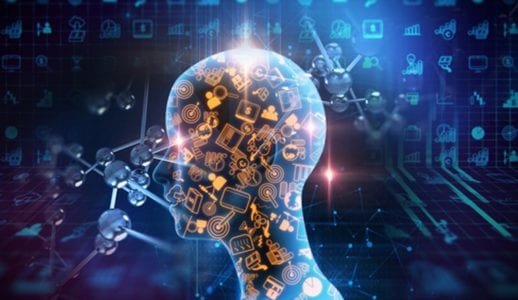
Information Technology is a word that is frequently used to refer to anything linked to the role of technology in making human life easier. For instance, the function in developing, modifying, storing, conveying, or spreading vital information in everyday life.
Information Technology Not Limited to Computers
Previously, information technology was limited to computers. However, as technology has advanced, telephones, televisions, cellphones, electronic devices for home purposes, and even watches can now be used as a means of communication as an extra device for cellphones have emerged.
It is well known that in order to ‘train‘ computers to think and act like humans, a massive amount of data (Big Data) is required. Especially now that computers may be trained to learn on their own from available data (also known as ‘machine learning‘).
Artificial Intelligence
As a result, the more data that is provided, the ‘smarter‘ the computer becomes. Recently, a prominent technology, artificial intelligence (AI), has become a global topic of discussion. Artificial intelligence (AI) is a machine-processed simulation of human intelligence. In this essay, we will look at the evolution of artificial intelligence (AI) technology in our daily life.
Of course, in the digital era and the Internet of Things (IoT), where all data can be digitized and gathered from anywhere – even in real time-, AI is developing very quickly around the world.
History
In fact, AI began to emerge in 1940, with the publication of Bertrand Russell and Alfred North Whitehead’s book Principia Mathematica. The early steps of artificial intelligence are discussed in this book. Then, in the 1990s, AI began to evolve with the application of psychology in computer science.
AI is a broad concept with two subtypes: ANI (Artificial Narrow Intelligence) and AGI (Artificial General Intelligence). ANI, or limited artificial intelligence, is a system that can do a task if it is programmed to do so. Meanwhile, AGI is an artificial intelligence that can do all that humans do and more.
ChatGPT
ChatGPT is a virtual assistant that employs Artificial Intelligence. Whereas technology may assist with a variety of daily tasks such as brainstorming ideas, acquiring information, and assisting with text content creation. It’s no surprise that AI is a mainstay for many individuals due to the numerous benefits it provides.
Furthermore, virtual assistants that are commonly used in daily life have voice characteristics similar to the technology of a number of well-known corporations, especially Siri and Google Assistant. Both have been shown to be capable of replacing jobs that you would normally do with the assistance of Artificial Intelligence technology.
Impact of Artificial intelligence in Different Industry
Artificial intelligence (AI) has had a significant impact on the automobile and transportation industries. AI is becoming increasingly important in object recognition, navigation, and real time decision-making systems as autonomous cars evolve.
Cars using artificial intelligence can identify traffic signs, avoid crashes, and optimize travel routes. Furthermore, artificial intelligence (AI) technology is being employed in urban traffic management and the creation of intelligent transportation.
Online shopping applications may be one of the final examples of Artificial Intelligence (AI) that you use but are unaware of its significance. You frequently utilize numerous shopping platforms to meet diverse demands, and these platforms rely on AI technology in their operations.
The purpose of this technology is, of course, to improve the shopping experience by tailoring a number of product suggestions to the preferences of the users. These recommendations are based on the most common product selection patterns, which are investigated by Artificial Intelligence in order to curate the finest products for their users.
AI was created to assist humans with what they do. Of course, it is true that it can replace part of the job that is currently done by humans. Specifically, owned resources can be allocated for jobs that are more useful than repetitious and clerical work.
For example, if minor customer service problems can be handled automatically by the system, the available customer service professionals can be more efficient and focused on answering complaints about more complicated issues.
Artificial intelligence does not always have a bad connotation of replacing humans. Even while Artificial Intelligence can replace some vocations, it also creates new jobs or professions, such as data scientists, as well as improves our abilities and makes us better at what we do. Because Artificial Intelligence algorithms learn differently than humans, Artificial Intelligence perceives the world in a unique way.
Artificial Intelligence programs can detect links and patterns that humans would miss. This collaboration between AI and humans presents numerous prospects. This collaboration between AI and humans presents numerous prospects.
Conclusion
This collaboration has the potential to: 1) bring analytics to industries and domains where neither is fully utilized; 2) improve the performance of existing analytical technologies, such as computer vision and time series analysis; 3) break down economic barriers, including language and translation barriers; 4) improve existing capabilities and make us better at what we do; and 5) provide us with improved vision, understanding, memory, and other capabilities.
By: RENA AYU MAHESWARA
Write and Win: Participate in Creative writing Contest & International Essay Contest and win fabulous prizes.


